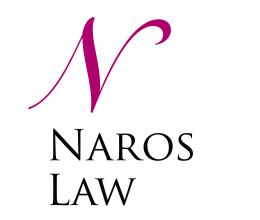Often times the decision to hire a lawyer is an easy one. Maybe you have been served, are looking at getting a divorce, or you have been charged with a crime; these instances typically need a lawyer. However, lawyers are not just for litigation or crimes, they can also give clients and potential clients advice and helpful information regarding different instances and cases. Lawyers can also help protect you from potential hardships, and an excellent lawyer can help those that have already gotten themselves into trouble.
It is important to hire someone you know will have your back at the end of the day — someone who can protect you financially and emotionally in the best way possible. In order to help you get the best lawyer for your needs, we have put together a comprehensive list of questions to ask before you decide to hire a lawyer.
- WHAT WILL IT COST?
This question is something that you need answered upfront as taking legal action can become quite expensive. You should know how much your lawyer will charge you for representation before they start working on your case. Every lawyer is different and so are the cases at hand. For some cases, costs can be a fixed amount, while others may be billed at an hourly rate. Many times, lawyers cannot predict the total cost as there are many variables involved, but an hourly rate can give you a good idea of the potential price tag. Another example may be that a lawyer will represent you for a “contingency fee.” This means that they will get paid a portion of what you get after winning a trial or getting a settlement. Whatever pricing methods the lawyer uses, make sure you discuss these expenses and attorney fees before moving forward.
- HOW LONG HAVE YOU PRACTICED LAW?
At the very least, you should know the lawyer’s competence and if they are a novice or a seasoned professional. Your legal issue may need someone with years of experience, or it could be simple, and it may very well be handled by someone who is not as experienced.
- DO I HAVE TO GO TO COURT?
Often times you can come to a conclusion outside of the courtroom. Sometimes cases can be closed through means of arbitration, negotiation, or mediation. A good attorney will typically let you know if your case can be handled through a more inexpensive and accelerated manner.
- HAVE YOU HANDLED CASES LIKE MINE?
Many times, this question is not asked, but it is an important one. Let’s say that you are involved in a DUI defense case, but the lawyer you are meeting with has represented those only involved in malpractice. This may not be the best lawyer for you, as this is not in their area of expertise. An attorney who has the appropriate background for handing your case will most likely be the one who will give you the best possible outcome while also saving you time and money.
- WHAT DOES YOUR TYPICAL CLIENT LOOK LIKE?
This question usually goes along with the previous question. You should know what kind of cases a lawyer handles, but you should also know what their clientele usually looks like. Ask about the financial background of the lawyer’s past client. Do they typically work with only high-income individuals or do they also represent low-income individuals or even college students? They may work with you on rates depending on your financial background.
- WHAT IS YOUR APPROACH TO WINNING A CASE?
Depending on the type of lawyer you want for your case, this is an important answer to know. Do you need an attorney who will be aggressive in your case or do you want to solve it amicably? A lawyer should outline how they will go about handling your case, while also explaining why they have chosen this strategy.
- WHAT IS THE POSSIBLE OUTCOME FOR MY CASE?
Although lawyers cannot predict the future, and they cannot guarantee you an absolute outcome, they can however give you an honest opinion of how your case may unfold. This can give you an idea of what direction you can take moving forward.
- HOW LONG WILL THE CASE TAKE?
Any experienced lawyer should be able to give you an estimated timeline of how long it will take for you to get a verdict on your case. Again, a lawyer cannot foresee what will happen in the future, and they cannot control the speed of the process, but they can give you an idea of when it be done and over with.
- HOW WILL WE COMMUNICATE?
This is also an important question to ask, as you should be able to get in touch with your lawyer if you do have any further questions or if you have any pertinent information to exchange. You should also feel comfortable enough with your lawyer that you can have regular communication with them if you need. Make sure that you have all the necessary information to contact your lawyer, and that you both come to an agreement on how you will be able to communicate during your case.
- WHAT DO I NEED TO DO TO PREPARE?
Sometimes you may just need to provide some documents or other information regarding you or the case. Usually, you will also be advised to not speak to anyone else involved in the case, including witnesses during this time. It is important to understand your part and what you can do or what you can provide the lawyer to help win your case.

